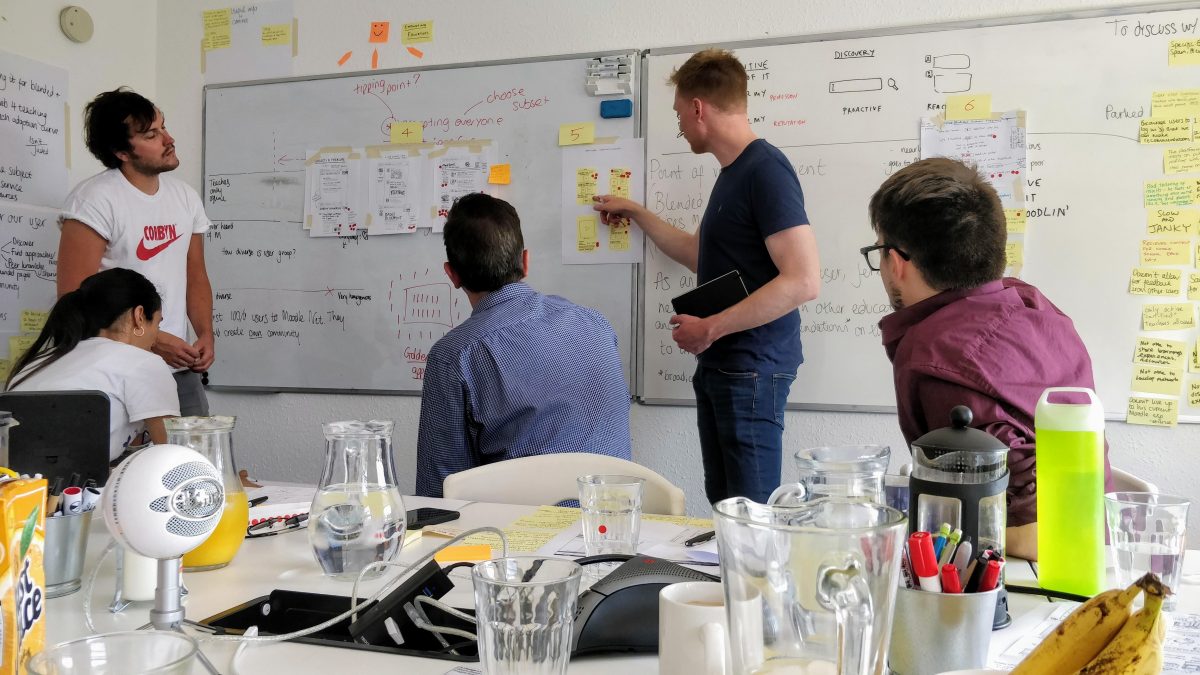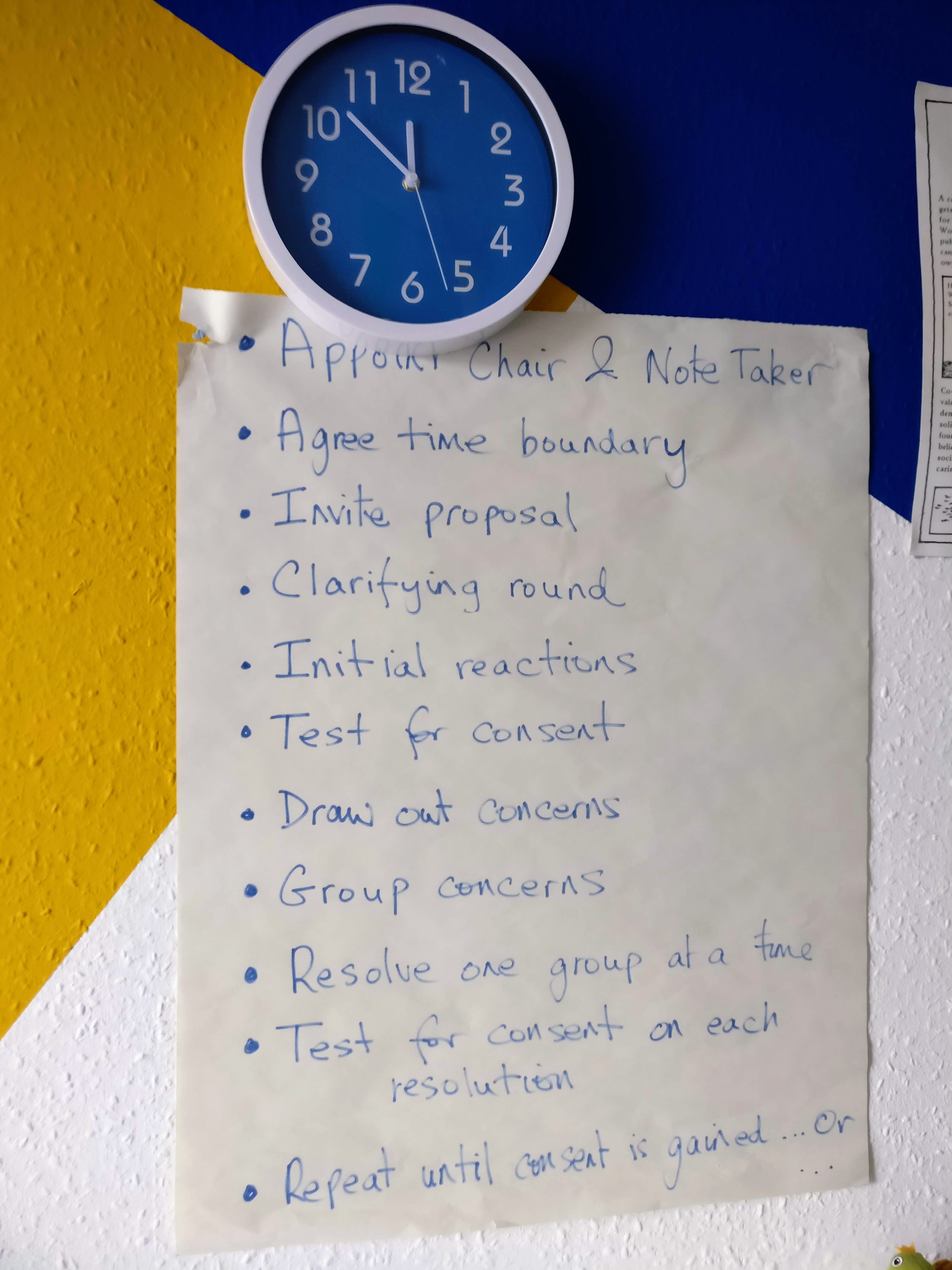Sociocratic design sprints

Update: Check out Kayleigh’s more comprehensive post on this at the Outlandish blog!
I wanted to take a moment to record a great twist that Outlandish made to the now-classic Google Ventures design sprint.
The week-long process, as documented in The Sprint Book, requires a ‘decision-maker’ with authority to sign things off. The reasoning?
Without a Decider, decisions won’t stick. If your Decider can’t join the entire sprint, have her appoint a delegate who can
On the very first day of the recent MoodleNet design sprint, Outlandish introduced us to a way of making decisions without recourse to a single person. That process is sociocracy (or ‘dynamic governance’) and something that, as a co-operative, Outlandish uses on a daily basis.

Here’s how it works:
- Appoint a Chair and Note-taker
- Agree time boundary
- Invite proposal
- Clarifying round
- Initial reactions
- Test for consent
- Draw out concerns
- Group concerns
- Resolve one group at a time
- Test for consent on each resolution
- Repeat until consent is gained
In practice, over the week-long design sprint, it was more like:
- Invite proposal (e.g. “MoodleNet should use the same colour scheme as Moodle core”)
- Clarifying round (e.g. “Do you mean the exact same colour orange?”)
- Draw out concerns (e.g. “I’m concerned that people will get confused between our products”)
- Test for consent (e.g. “I don’t have any critical concerns”)
- Invite new proposal (e.g. “MoodleNet should use similar brand guidelines to Moodle core”)
- (repeat)
There are several benefits to this process, which becomes quicker and more natural the more times you do it:
- The group gets used to giving consent despite having small concerns
- ‘Critical’ concerns from individuals can lead to modified (and improved) proposals
- The group can quickly move forward without getting stuck on opinions
I’ve read quite a bit about sociocracy in theory, but it was so good to see the approach working in practice. Not only did it make the week more democractic, but it actually accelerated things! The Outlandish team got us testing on Thursday instead of Friday, which meant we spent a day iterating and focusing on next steps.
